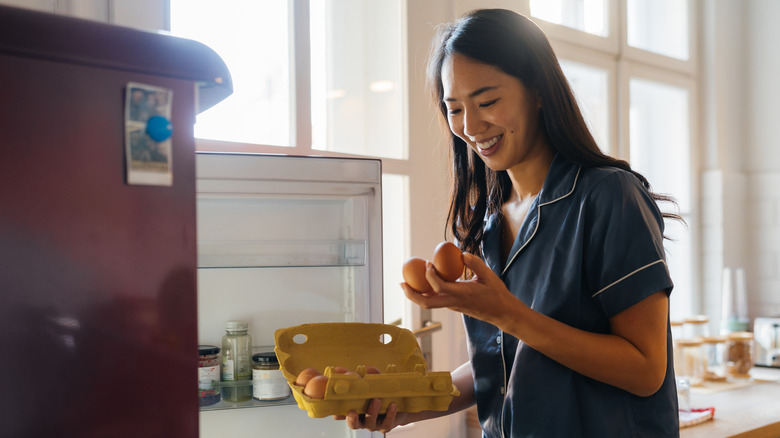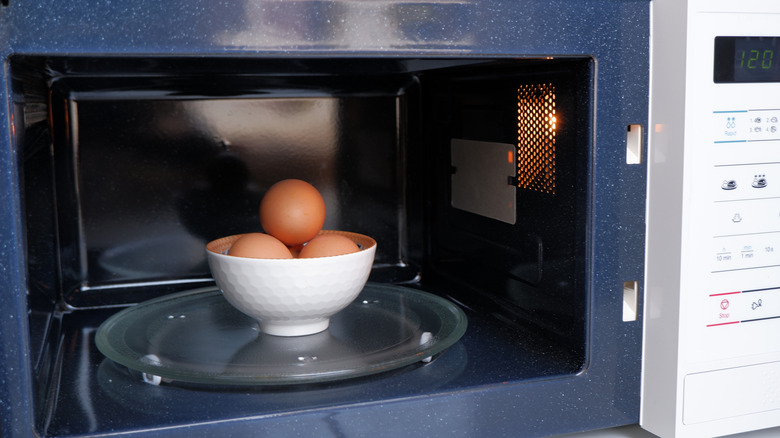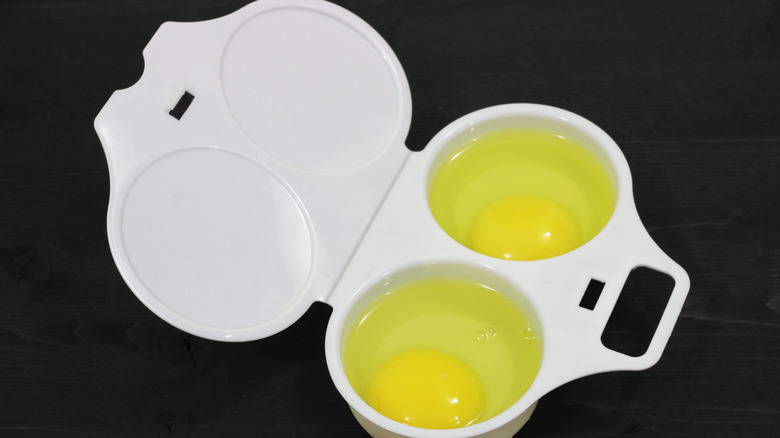
We may receive a commission on purchases made from links.
According to Healthline, eggs are “among the most nutritious foods on the planet.” As they note, a single large boiled egg provides 78 calories, 6 grams of protein, and 5 grams of fat. It also contains vitamins A, B2 (riboflavin), B5 (pantothenic acid), B6, B9 (folate), B12 (riboflavin), D, and E, as well as the minerals calcium, phosphorus, selenium, and zinc. Additionally, if you eat pastured or omega-3-enriched eggs, you can benefit from higher amounts of omega-3 fatty acids and vitamins A and E.
When it comes to cooking methods, boiling or poaching your eggs may be the healthiest. (Here’s the healthiest way to cook your eggs if you have high cholesterol.) No added butter or oil means they are lower in fat and calories. Also, these cooking methods cause less cholesterol oxidation and don’t destroy as many of the nutrients. However, they advise against using a microwave to cook your in-shell eggs. It could be dangerous, and you can achieve the same lower-fat health benefits by cooking your eggs in other ways.
Why you shouldn’t microwave eggs in the shell

While it might seem like microwaving in-shell eggs would be a quick way to get the same health benefits as boiling them in a pot of water, The Incredible Egg explains that you should never do this for one very simple reason: the eggs could explode. Microwaves heat so rapidly that steam builds up in the eggs faster than it can escape through their pores. This rising pressure leads to the shells bursting open, which, at a minimum, can be messy and may create a safety hazard for you if it splatters hot egg onto your skin. (The USDA also advises against cooking raw chicken in the microwave.)
The Incredible Egg additionally writes that this same principle applies to microwaving the yolk of an unbeaten egg. You should use a knife or a wooden toothpick to poke a hole in the yolk so that steam can vent during cooking. (How to prevent a microwave eruption when cooking liquids.)
How to safely microwave eggs

Oregon State University Extension Service says the best way to cook eggs in the microwave is to scramble them or use them in an omelet. Mixing the higher-fat yolk in with the white allows it to cook more quickly and evenly. They say you can also poach your eggs in the microwave by boiling water, adding the egg, and then cooking it for a short time to set the egg. Microwaves vary, so you may have to experiment a bit to get the right timing and power setting to achieve your desired results.
There are also several tools available that can make cooking perfect microwaved eggs a cinch. If you’re looking to make poached eggs, you can try Mofala’s 2 Cavity Microwave Egg Cooker. Or, if you want the flexibility to also create a delicious omelet, Dependable Industries’ Essentials Microwave Egg Cooker might be a better option for you. Using products like these will help take the guesswork out of cooking your eggs in the microwave since they come with instructions for use.
“`




